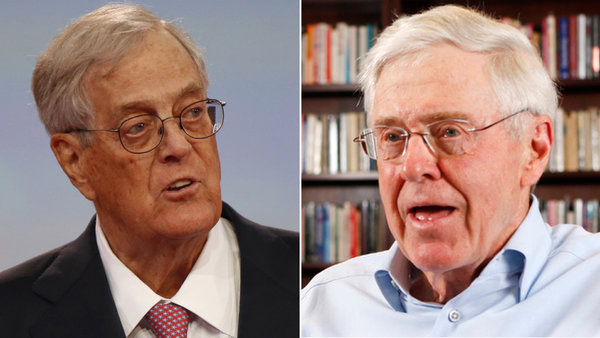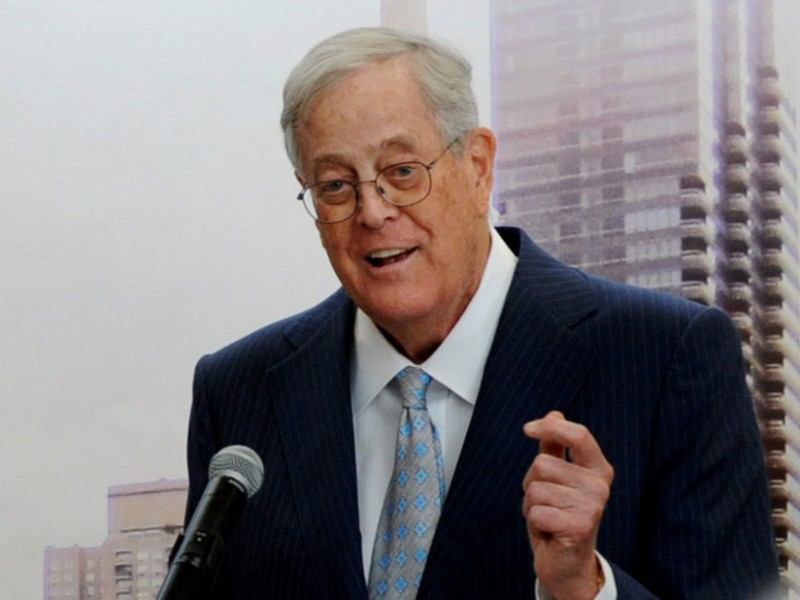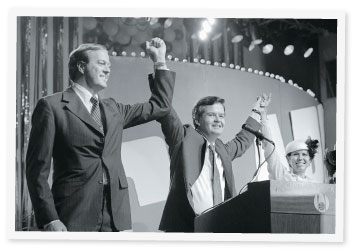Busting unions gave Calvin Coolidge the White House, but it gave America the Great Depression
February 23, 2011- For years, American workers’ wages have stagnated even as they produced more. Since 2008, they have been socked with staggering new bills for bank bailouts and hammered by a Great Recession brought on by the very same banks. Now public sector workers are confronted by a new crop of Republican governors who want to put an end to unions. Union workers in Wisconsin have already conceded all of Governor Walker’s draconian demands. But they want to hold on to their right to bargain so that they won’t be at the mercy of the whims of political appointees or rogue school boards. Tens of thousands have swarmed Madison to show their support for the working people of Wisconsin.
Conservatives are tasked with coming up with a narrative that makes villains out of these working folks and heroes out of the powerful people who aim to squeeze them for what’s left of their economic security.
This is not easy. And you have to admire their ingenuity. Amity Shlaes, ever the eager revisionist, has whipped up a widely parroted narrative that contains just enough truth to give it the ring of plausibility. It goes like this: Governor Scott Walker is a paragon of virtue who will soon be embraced by the American public, just like his union-crushing predecessors Calvin Coolidge and Ronald Reagan. According to Shlaes’s account, Coolidge, then governor of Massachusetts, stood boldly against badly abused Boston policemen who walked off the job in 1919 and left the city unprotected against looters. After firing the policemen, Coolidge became a national hero and was promptly swept into the Vice President’s office on a wave of popular admiration. When President Warren Harding died, Coolidge took office and it was suddenly Morning in America. As Shlaes tells it:
"'Boston Police' remained American code for the principle that union causes do not trump others. The concern that the U.S. might succumb to European-style revolutions lifted. Strikes abated. Wages rose without unions in Motor City. Private-sector union membership declined. Joblessness dropped. Companies poured cash, which they otherwise would have spent on union relations, into innovation."
Let us fill in some finer detail, shall we?
As Shlaes admits, the Boston police force had been grossly abused with long hours and horrific conditions. And it was true that there was some disorder when they walked off the job, though she somewhat overstates the case. It is also true that Coolidge’s response made his reputation as a Republican politician.
But it was not exactly popular enthusiasm that wafted Coolidge into the White House. Actually, there was a huge orchestrated effort to push Coolidge by powerful financial interests. He ended up on the ticket with Warren Harding not so much because of his overwhelming appeal to the American public - he was known for being taciturn, unsociable, and downright weird (Alice Roosevelt Longworth wondered if he had been "weaned on a pickle"). Rather, it was his overwhelming appeal to American bankers.
They knew a good thing when they saw it.
Young Coolidge, you see, had gone to Amherst College, where he had hardly any friends except Dwight Morrow, who became his bosom buddy. Coolidge went on to become a small town Massachusetts attorney representing banks, while Morrow became a senior partner in House of Morgan. When Morrow saw his pal Coolidge attracting attention in the Boston Police Strike, he wrote to everyone he knew and launched a national campaign to make a legend out of the uncharismatic Coolidge. Morrow and fellow Morgan partner Thomas Cochran lobbied tirelessly for Coolidge at the Chicago Republican Convention in 1920, and their lobbying paid off. Coolidge, first as vice president and then as president in 1923 when Harding died, became a valuable partner for the House of Morgan. Famously declaring that “the business of America is business,” Coolidge stocked his administration with enough Morgan men to fill a banking convention. Historian Murray N. Rothbard notes that
"the year 1924 indeed saw the House of Morgan at the pinnacle of political power in the United States. President Calvin Coolidge, friend and protégé of Morgan partner Dwight Morrow, was deeply admired by J.P. "Jack” Morgan, Jr. Jack Morgan saw the president, perhaps uniquely, as a rare blend of deep thinker and moralist. Morgan wrote a friend: 'I have never seen any president who gives me just the feeling of confidence in the country and its institutions, and the working out of our problems, that Mr. Coolidge does.'"
Coolidge got to the White House for crushing unions, where he slept ten hours a day and hopped on and off a mechanical horse in his underpants and a cowboy hat.
Here’s what America got: the Great Depression.




'Salon: What the right forgets about labor history' have no comments
Be the first to comment this post!